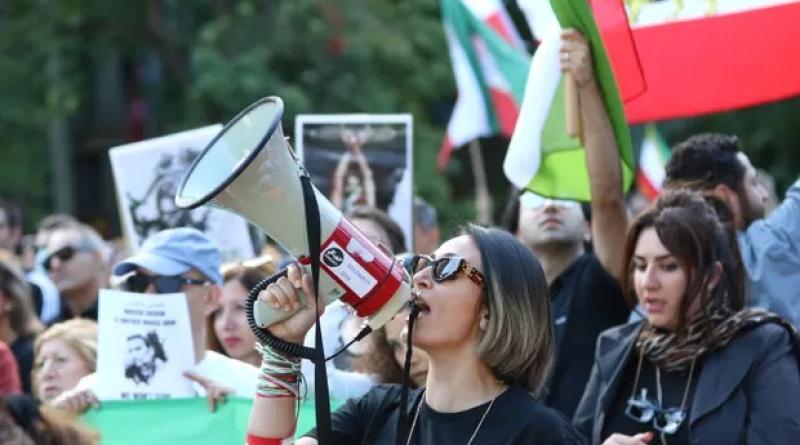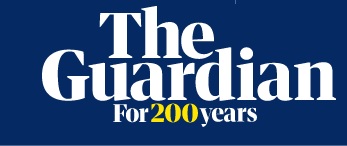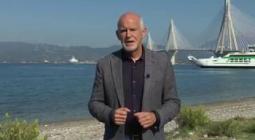Amid the climate crisis, Covid and crumbling democracies, I find hope in people who show the best of humanity

It’s the potential of individuals to change the world which is at the heart of democratic liberalism – but their actions must be matched by global support
As we farewell 2022, many of the world’s citizens will be hoping for a better new year. It is hard to look back on the past year – indeed couple of years – without a high degree of angst about the direction of our global community.
We have been battered by a pandemic that, while past the peak for most nations, is still disrupting societies and economies. After two years of its hermit-like isolation, 1.4 billion Chinese citizens are now experiencing a nationwide Covid onslaught for the first time with ripples that will not only affect the lives of those in China but the rest of the world linked to the second largest economy.
We are experiencing the economic consequences of that evil war in Europe and the Covid legacy, which is threatening economic prosperity and, with the inflation genie out of the bottle, creating real cost-of-living pressures across the globe.
The overarching ongoing threat is climate change. While there have been many steps forward we are still walking when we need to be running if we are to protect our planet from unsustainable temperature rises.
Most notably however, 2022 has been the year of the tyrants, with the erosion of liberal democratic values now posing a greater threat to the freedom of so many around the world.
This is not a new phenomenon – democracy has been on the retreat for much of the 21st century. Yet the actions of Putin’s Russia, the ambitions of President Xi of China and the craziness that has entered US politics have all highlighted the threats democracy faces and our hopes for a peaceful world.
Freedom House, a US-based NGO, has tracked democracy and freedom around the world for decades. Its most recent global assessment, which covered 2021, found freedom had gone backwards in 60 nations and only improved in 25. Starkly, it found only 20% of the world’s population lives in nations categorised as “free”. Nearly twice as many – 38% – live in countries which are designated as “not free”, with the balance in nations that enjoy limited but not adequate freedoms and democracy.
We see this writ large in nations that have long disregarded the rights of their citizens and more recently joined by regressive developments in places like Myanmar, Hong Kong and, of course, Afghanistan.
It’s a grim tale, so, how do we find hope in such a world. I believe we can.
Recently I attended a talk by one of our nation’s leading political commentators. He listed the type of challenges facing humanity I have mentioned. At the end of his speech, I asked him was there any good news or cause for optimism. His response was interesting – in such a world we must strive to find happiness in our own private lives.
There is some truth in this as we perhaps have come to better appreciate our own personal relationships and families during the pandemic. But it’s not an easy thing to tell someone sitting in a bunker in Kyiv, or a woman facing renewed oppression in Kabul, or even a citizen of Europe wondering how they will pay the power bills to keep their house warm.
What I do find hope in, however, are the actions of individuals who are showing the best of humanity and the courage to fight for a better future. It is the potential of individuals to change the world which is at the heart of the democratic liberalism that has guided our advances over the last two centuries.
As a casual student and admirer of political oratory, one of the greatest speeches delivered in the modern era was that by Robert Kennedy at the University of Capetown in 1966 (it’s worth Googling!). Speaking to students living under the yoke of cruel apartheid he offered solace and encouragement. He said:
Each time a man stands up for an ideal, or acts to improve the lot of others, or strikes out against injustice, he sends forth a tiny ripple of hope, and crossing each other from a million different centres of energy and daring those ripples build a current which can sweep down the mightiest walls of oppression and resistance.
He also reminded those students of Archimedes’ words: “give me a place to stand and I will move the world.”
So, my hope is in the actions of those standing against tyrants – the brave citizens of Ukraine led by their president, Volodymyr Zelenskiy. Those who were prepared to risk so much by protesting on the streets of China, or those in Iran, Myanmar, and more recently, female students in Afghanistan.
Their actions must be matched by broader global support, and if there is one positive trend of the last year it has been the increasing coalescence of democratic nations recognising the role they must play.
Just as we celebrate those individuals fighting against injustice, we can also find hope in those other warriors for our future – those in health care, laboratories and research institutions working to find solutions to climate change or disease.
I marvel at what they are achieving – from new vaccines and gene therapies to treat cancers, to better ways of reducing emissions and the recent breakthrough in fusion energy, and the scientists who showed we may even be able to divert life destroying asteroids from their trajectories.
Heroes come in many forms and we are in their midst – and that gives me hope for a better 2023.
-
Trent Zimmerman is the former federal member for North Sydney
COVER PHOTO: ‘If there is one positive trend of the last year it has been the increasing coalescence of democratic nations recognising the role they must play against tyrants.’ Photograph: Richard Milnes/REX/Shutterstock



